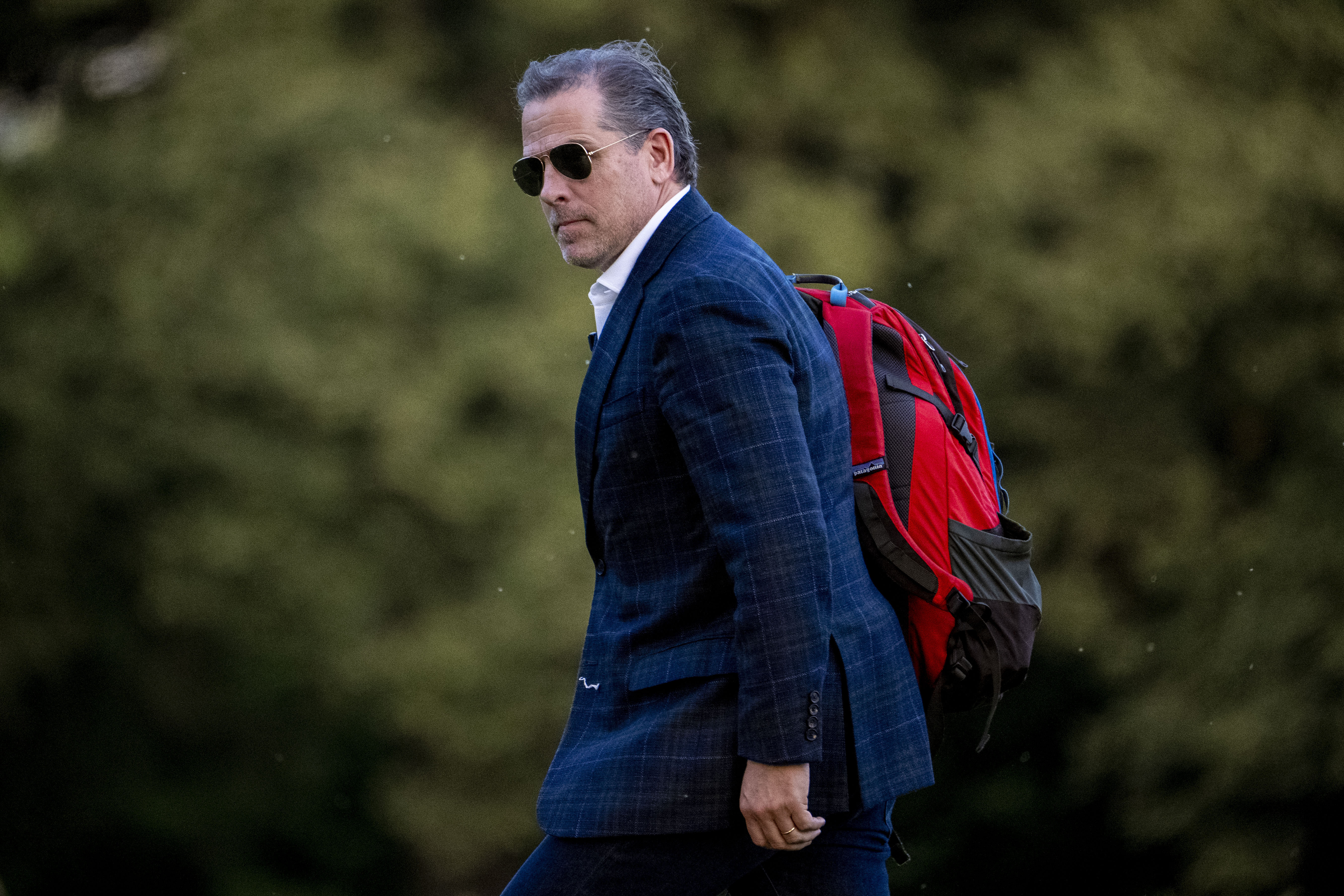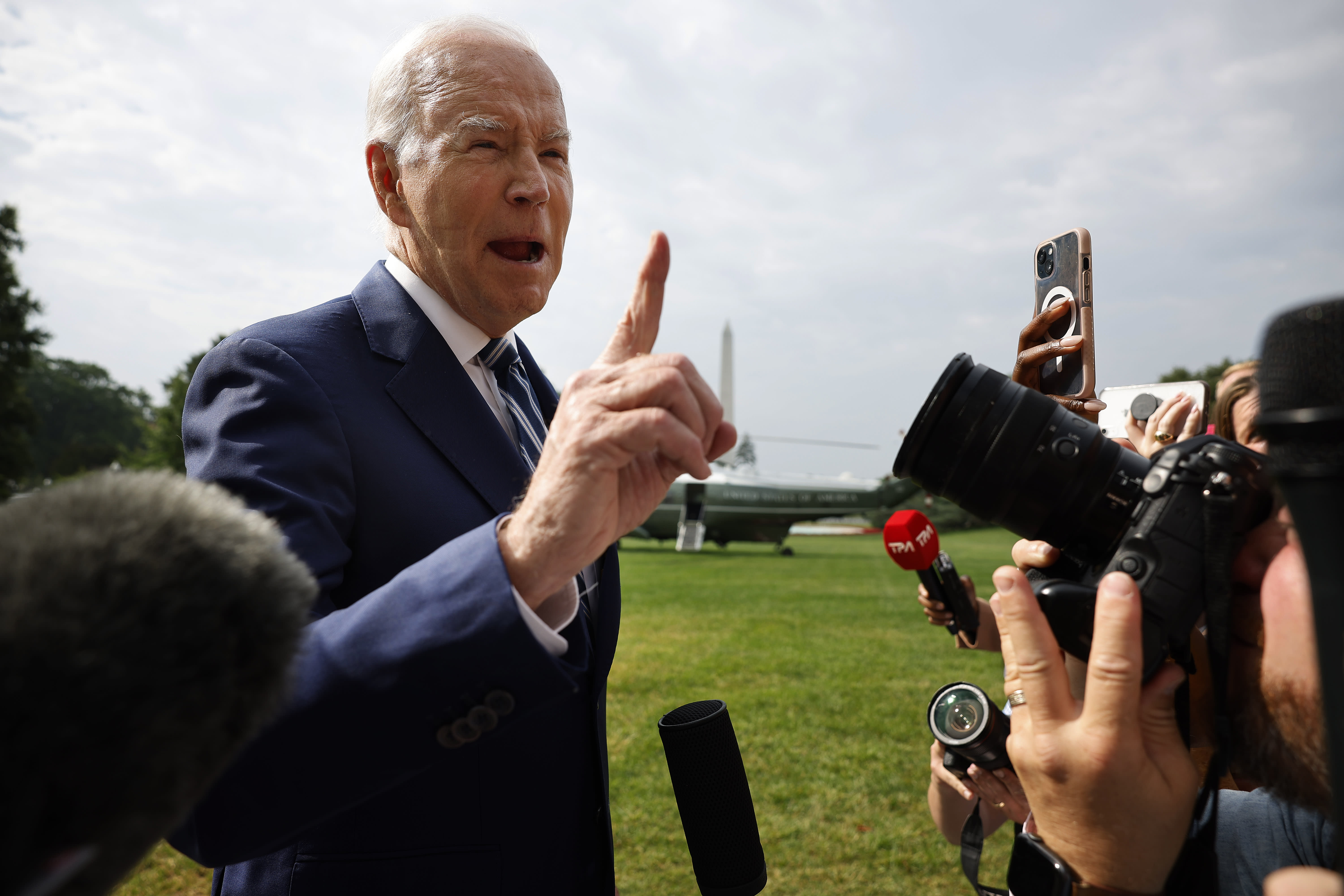
The Republican chairmen of three key House committees are joining forces to probe the Justice Department’s handling of charges against Hunter Biden after making sweeping claims about misconduct at the agency.
Leaders of the House Judiciary, Oversight and Accountability, and Ways and Means committees opened a joint investigation into the federal case into President Joe Biden's youngest son days after it was announced last month that he will plead guilty to the misdemeanor tax offenses as part of an agreement with the Justice Department.
Watch NBC6 free wherever you are
>Reps. Jim Jordan of Ohio, James Comer of Kentucky and Jason Smith of Missouri have since issued a series of requests for voluntary testimony from senior officials at the Justice Department, FBI and Internal Revenue Service as they investigate what they claim is improper interference. Republicans have also requested a special counsel review of supposed retaliation against the whistleblowers who came forward with the claims.
Get local news you need to know to start your day with NBC 6's News Headlines newsletter.
>The congressional inquiry was launched after the House Ways and Means Committee, led by Smith, voted last month to publicly disclose hundreds of pages of testimony from the IRS employees who worked on the Hunter Biden case.
The transcripts of Greg Shapley and an unidentified agent detail what they called a pattern of “slow-walking investigative steps” and delaying enforcement actions in the months before the 2020 election won by Joe Biden.
The Justice Department has denied the whistleblower claims and said repeatedly that U.S. Attorney David Weiss in Delaware, the federal prosecutor who led the investigation, had “full authority” of the case.
Here’s what to know about the emerging investigation.
Investigating IRS whistleblower claims
In April, the first IRS whistleblower, Shapley, came forward when his attorney reached out to GOP Sen. Chuck Grassley of Iowa to say that his client had information about a “failure to mitigate clear conflicts of interest in the ultimate disposition” of what was then an ongoing criminal investigation related to Hunter Biden.
Smith, chair of the Ways and Means Committee, who has jurisdiction over the IRS, brought in Shapley in late May for an hourslong interview, where he described several roadblocks that he and several other IRS agents on the case encountered when trying to interview individuals relevant to the investigation or issue search warrants.
The whistleblowers insist their testimony reflects a pattern of inference and preferential treatment in the Hunter Biden case and not just disagreement with their superiors about what investigative steps to take. Justice Department policy has long warned prosecutors to take care in charging cases with potential political overtones around the time of an election, to avoid any possible influence on the outcome.
The most disputed claim from the whistleblowers is that Weiss — first appointed by former President Donald Trump and kept on by the Biden administration — asked the Justice Department in March 2022 to be provided special counsel status in order to bring the tax cases against Hunter Biden in jurisdictions outside Delaware, including Washington, D.C., and California, but was denied.
A second IRS whistleblower, who asked the committee to keep his identity secret, described his persistent frustrations with the way the Hunter Biden case was handled, dating back to the Trump administration under Attorney General William Barr. He said he started the investigation into Hunter Biden in 2015 and delved deeply into his personal life and finances.
Investigating claims of retaliation
Both men have testified that they faced retaliation at the IRS after coming forward with concerns about the handling of the Hunter Biden case. Shapley, who was a career supervisory agent, told the committee that Weiss helped block his job promotion after the tax agency employee reached out to congressional investigators about the Biden case.
The second unidentified whistleblower said he was taken off the Hunter Biden investigation around the same time as Shapley, who was his supervisor. Though he was informed of the decision by officials at the IRS, the second whistleblower believes his removal was actually ordered by officials in the Justice Department. Neither of the men provided lawmakers evidence that was the case, instead citing what they had witnessed internally as they pushed for various investigative steps.
The three Republican chairmen, along with Sens. Grassley and Ron Johnson of Wisconsin, sent a letter to the Justice Department asking for an immediate review of the retaliation claims.
“The importance of protecting whistleblowers from unlawful retaliation and informing whistleblowers about their rights under the law cannot be understated. After all, it is the law,” the lawmakers wrote.
Justice Department pushback
The Justice Department has denied the allegations from the whistleblowers, saying that Weiss has had “full authority over this matter, including responsibility for deciding where, when, and whether to file charges as he deems appropriate. He needs no further approval to do so.”
Attorney General Merrick Garland also rebuffed the idea that Weiss, a veteran prosecutor, asked to be designated as a special counsel.
“The only person who has the authority to make someone a special counsel, or refuse to make them a special counsel, is the attorney general,” Garland told reporters last month. He added, “Mr. Weiss never made that request.”
In a June 30 letter, Weiss also further denied the claims by telling House Republicans that the Justice Department “did not retaliate” against Shapley. He also said he was assured by the department that if he sought to bring charges against Hunter Biden in a venue other than Delaware, he would be granted special status to do so. Generally, U.S. attorneys are limited to their own jurisdictions when bringing criminal charges.
Next steps
The three Republican chairmen have provided a deadline of Thursday for the department to begin scheduling nearly a dozen individuals for transcribed interviews. They have said that if the deadline is not met, they will resort to issuing congressional subpoenas to force cooperation.
Weiss said in his recent letter that he would be willing to discuss such topics with congressional officials, but reiterated that he cannot divulge information about the Hunter Biden case because it is an active criminal investigation.
Garland has said publicly that he would not stop Weiss from testifying before Congress. “I would support Mr. Weiss explaining or testifying on these matters when he deems it appropriate,” the attorney general said.



